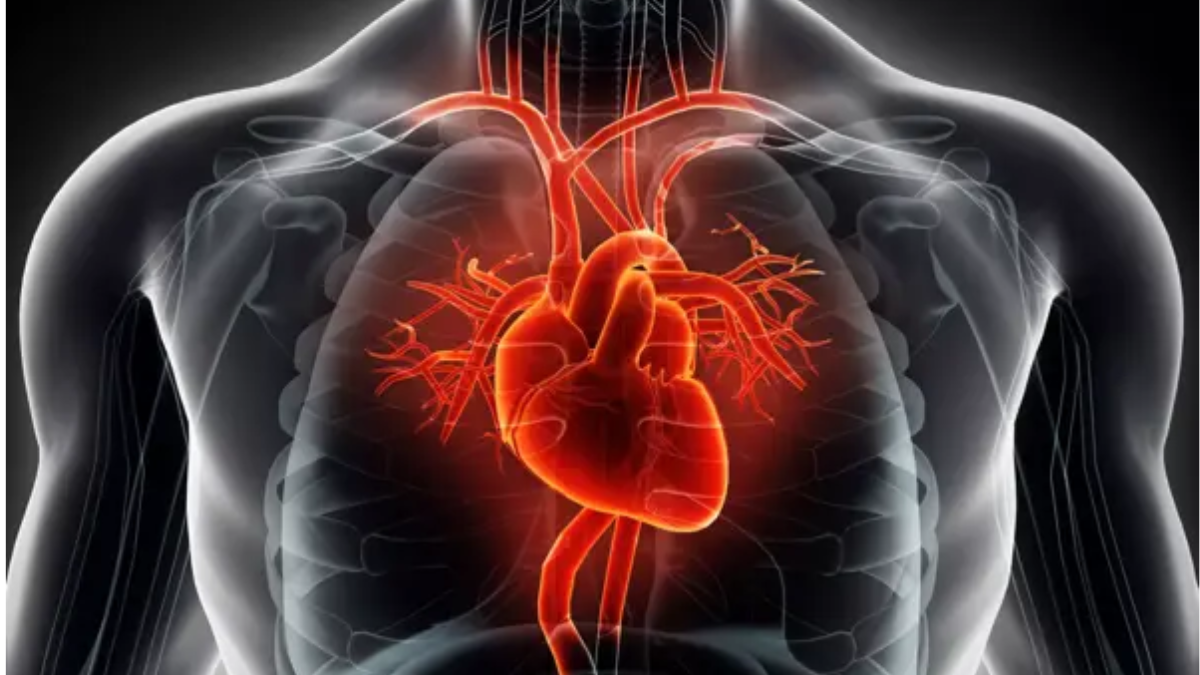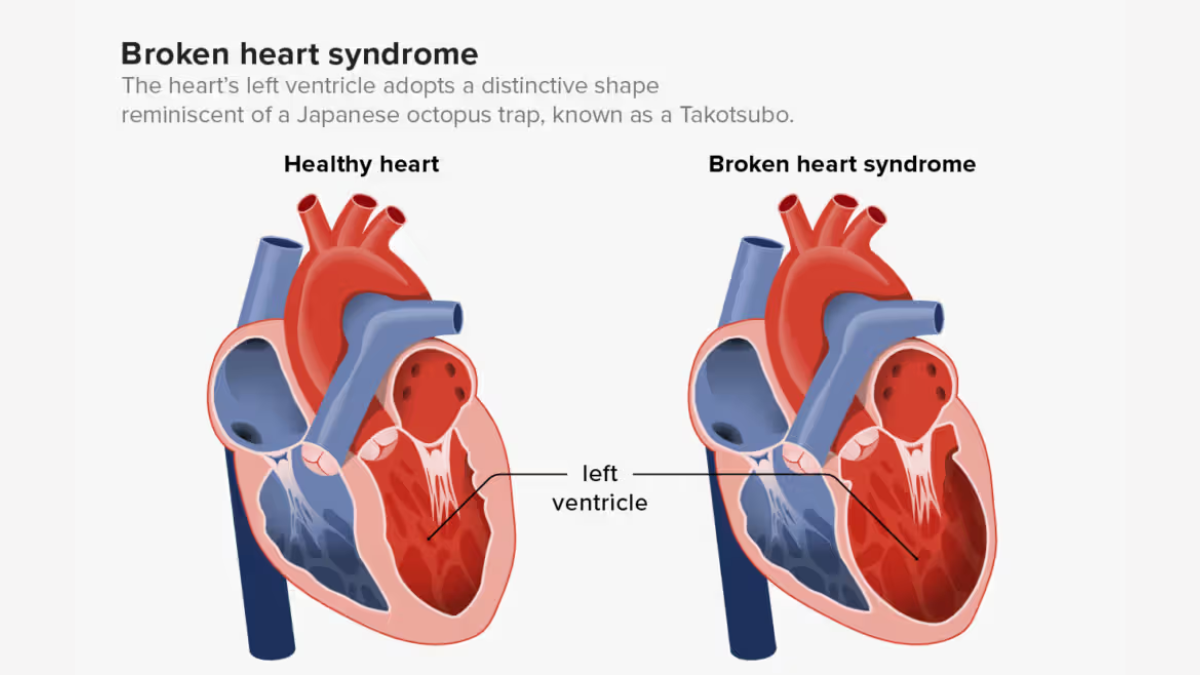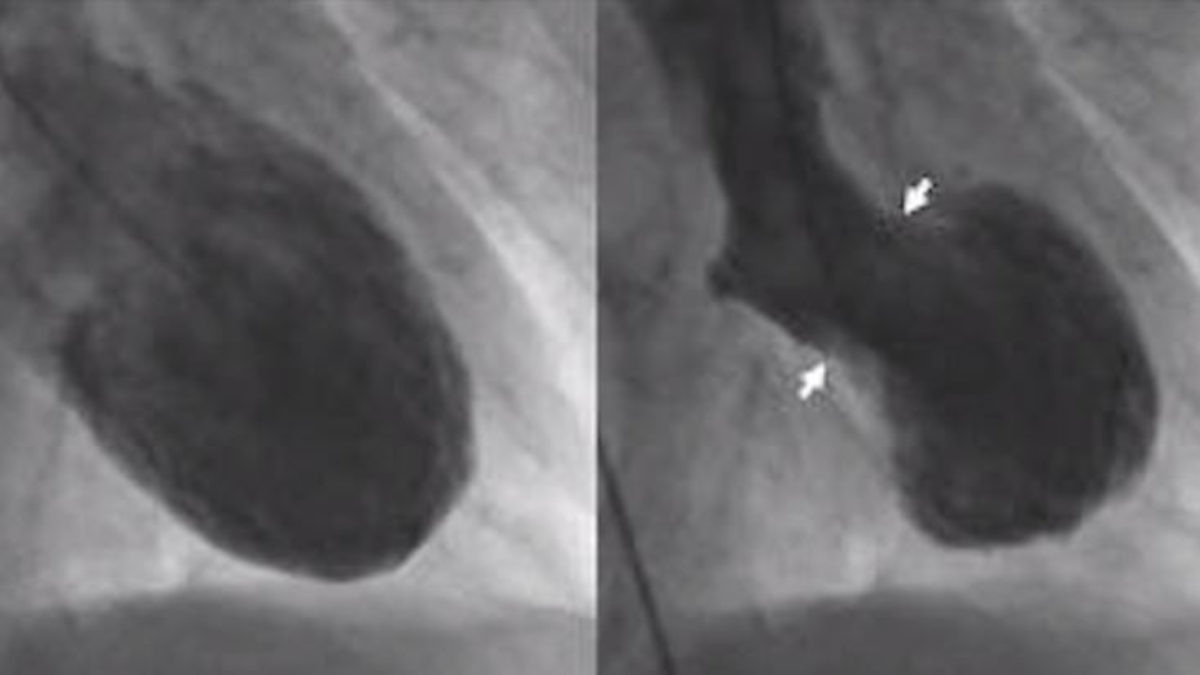
A broken heart may seem like just a poetic phrase, but for many, it becomes a real medical condition with potentially fatal consequences. Scientifically referred to as takotsubo cardiomyopathy, "broken heart syndrome" is a stress-induced heart disease that mimics a heart attack, and new research reveals that while it affects women more often, men are significantly more likely to die from it.
Table of Content:-
What Is Broken Heart Syndrome?
Takotsubo cardiomyopathy typically occurs after a person experiences a sudden emotional or physical shock — such as the loss of a loved one, a divorce, or a traumatic medical episode like surgery or a stroke. It temporarily weakens the heart’s left ventricle, affecting its ability to pump blood efficiently. Patients often present symptoms similar to a heart attack: chest pain, breathlessness, and fatigue. However, unlike a traditional heart attack, it is not caused by blocked arteries.

Despite its dramatic presentation, most people recover fully within a few weeks. However, a small portion of patients develop complications like heart failure, and recent evidence points to men being at a disproportionately higher risk of dying from it.
The Gender Divide: Why Men Fare Worse
A comprehensive study published in the Journal of the American Heart Association analysed hospital records from nearly 200,000 patients diagnosed with broken heart syndrome between 2016 and 2020. While women accounted for the majority of cases, mortality rates among men were more than double. About 11% of male patients died compared to just 5% of women.
Also Read: FDA Moves To Ban Popular Kids’ Supplements Amid Alarming Brain Damage Risk
Experts believe this striking disparity could stem from the types of stressors triggering the syndrome in each gender. In women, emotional shocks, such as grief or job loss, are common causes. In men, the condition more frequently arises following intense physical events like surgeries, infections, or strokes, which may pose a higher physiological threat.

"Men are less commonly affected, but when they are, the severity tends to be much greater," said Dr. Ilan Wittstein, a cardiologist at Johns Hopkins. "That means a more aggressive trigger is needed, which could also mean a more dangerous outcome."
The Role of Social Support and Recovery
Another potential factor in this gender gap is social connectivity. Studies show that social support can play a crucial role in recovery from stress-related illnesses. Dr. Mohammad Movahed, the lead author of the study, suggests that men often lack the robust emotional support networks that women typically rely on during recovery, making healing more difficult and protracted.
Also Read: Type 1 Diabetes Diagnosed In Adulthood Tied To Higher Heart Disease And Death Risk: Study Finds
Persistent stress following the initial event may continue to exert pressure on the heart, further reducing the chance of recovery. In contrast, those with emotional support systems may cope better and experience fewer lingering effects.

Unanswered Questions and Complex Triggers
Despite advancements in understanding, scientists are still grappling with many unknowns surrounding broken heart syndrome. While stress is a well-established trigger, it isn’t always severe or dramatic. Some patients report developing symptoms after minor events, even something as simple as vomiting from a stomach bug or being frustrated in traffic.
Dr. Harmony Reynolds of NYU Langone Health noted that some individuals may have a biological predisposition that makes their cardiovascular systems more vulnerable to even modest stress. Research has also linked susceptibility to post-menopausal changes in estrogen levels, although conclusive evidence is still lacking.
Limited Treatment Options and Advice
Unlike traditional heart conditions, there is no gold-standard treatment for broken heart syndrome. Medications such as beta-blockers are sometimes used to manage symptoms, and doctors often recommend stress management strategies, including mindfulness, therapy, or lifestyle changes. However, no therapy has consistently shown to reduce mortality.
Given the lack of targeted treatment, early recognition is critical. Experts urge anyone experiencing sudden chest pain or shortness of breath not to dismiss their symptoms as mere stress. “You can't distinguish this from a heart attack without proper medical evaluation,” said Dr. Reynolds. “If you have chest pain, go to the hospital.”
Bottomline
While broken heart syndrome is still somewhat of a medical mystery, its seriousness is increasingly clear, especially for men. As research evolves, the hope is to identify more precise treatments and prevention strategies. For now, understanding the risks and seeking timely care remains the best defence against this deceptive and potentially deadly condition.
Also watch this video
How we keep this article up to date:
We work with experts and keep a close eye on the latest in health and wellness. Whenever there is a new research or helpful information, we update our articles with accurate and useful advice.
Current Version
